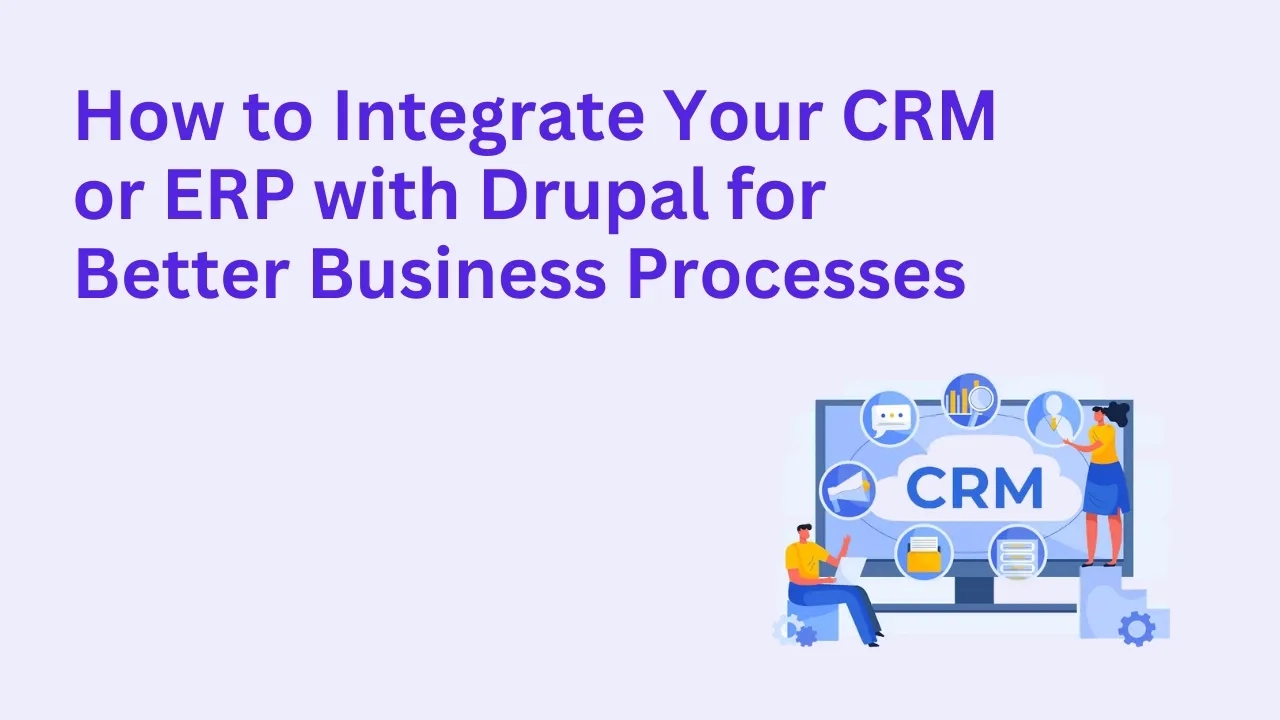How to Integrate Your CRM or ERP with Drupal for Better Business Processes

In today’s fast-paced digital landscape, disconnected data can create bottlenecks in your operations. When your website, CRM, and ERP systems aren’t working together, you’re missing out on seamless workflows and critical insights. The good news? Drupal’s flexibility makes it an ideal platform for integrating your CRM and ERP systems to streamline business processes and drive growth.
Why CRM and ERP Integration Matters
Integrating your CRM or ERP with Drupal offers multiple advantages:
Centralized data management, reducing duplication and manual errors
Enhanced customer experiences through personalized content and offers
Unified reporting and analytics for better decision-making
Streamlined operations and automated workflows
Key Benefits of Integration
For CRM Integration
Deliver personalized experiences by syncing customer data with your site
Automatically capture and nurture leads directly within your CRM
Segment users more effectively for targeted marketing campaigns
For ERP Integration
Real-time inventory updates for eCommerce sites
Automated order processing and status updates
Seamless billing, invoicing, and financial accuracy
Steps to Integrate Your CRM or ERP with Drupal
1. Choose the Right CRM/ERP System
Popular CRMs that work well with Drupal include Salesforce, HubSpot, and Zoho CRM. For ERP, consider systems like SAP, Microsoft Dynamics, or NetSuite. Choose a platform that aligns with your business needs and future growth plans.
2. Leverage Drupal Modules and APIs
Drupal’s modular architecture and robust APIs make integrations more straightforward. Use contributed modules like the Salesforce Suite for CRM or ERP connectors and REST API modules for ERP systems. Tools like Feeds and Migrate API can also help with data migration and synchronization.
3. Use Middleware for Complex Integrations
If your data flows are complex, middleware solutions like Zapier, Mulesoft, or custom-built middleware can bridge your CRM or ERP with Drupal. Middleware ensures data is properly transformed and routed to the right systems.
4. Customize Workflows and Data Mapping
Each business has unique processes. Map data flows to match your specific workflows, and create custom endpoints or Drupal hooks to handle special business rules.
5. Test and Secure Your Integration
Thorough testing ensures data accuracy and system reliability. Use secure authentication methods like OAuth or API keys, and protect sensitive data with secure endpoints and best security practices.
Why Choose Drupalify for Your Integration Project
At Drupalify, we understand that seamless integrations aren’t just about connecting systems—they’re about transforming how you work. Our team can:
Design and implement integrations tailored to your business
Customize data flows to meet your unique workflows
Ensure security and compliance throughout the process
Optimize your Drupal site for performance post-integration
Explore our full range of services here: Hire Drupal Developers
Or schedule a free consultation: Book a Free Consultation
Let’s Connect Your Business Systems for Growth
Stop letting data silos slow you down. Connect your CRM and ERP with Drupal to unlock smarter workflows, better data insights, and stronger customer experiences.








